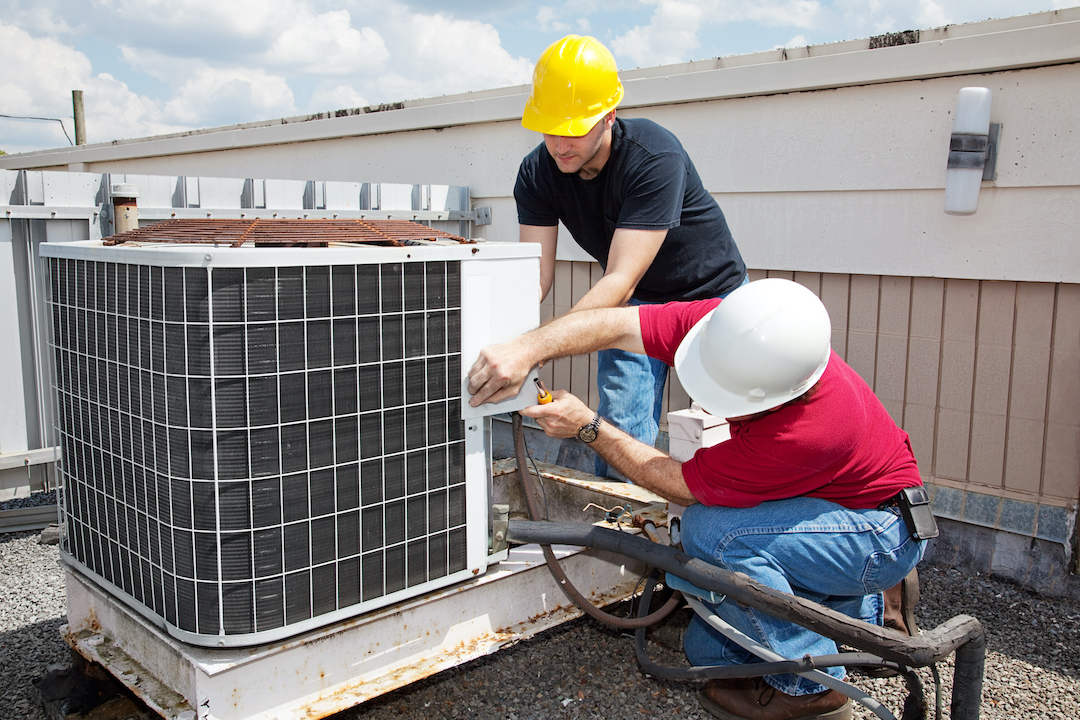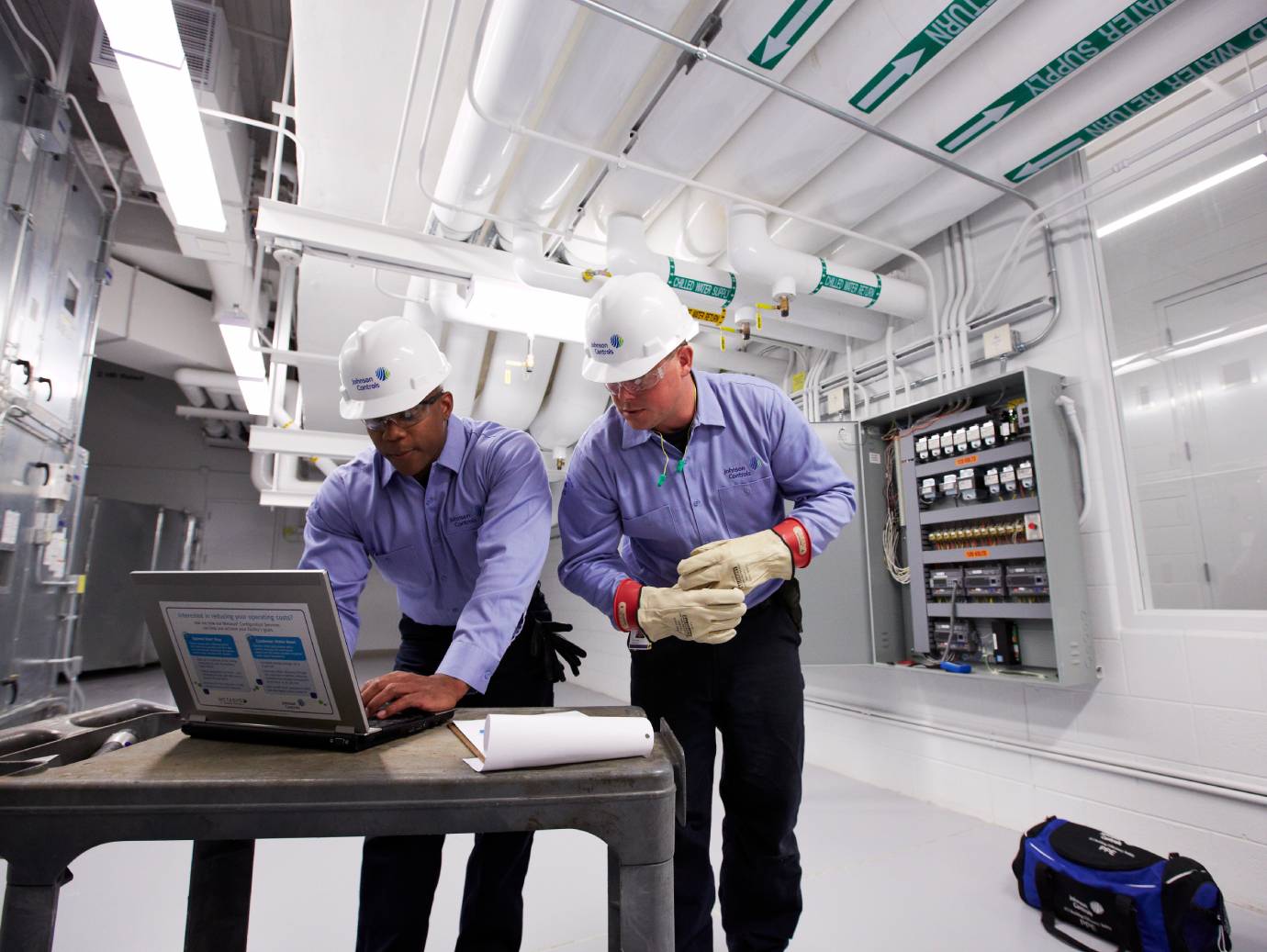Cost Planning for Your Upcoming heat pump replacement ooltewah tn
Selecting In Between a Heatpump and Heater: Key Factors To Consider for Your Heating And Cooling Needs
When examining home heating options for heating and cooling requires, the decision between a warmth pump and a furnace can be complicated. Each system offers distinctive benefits tailored to details environments and energy performance goals. Recognizing these differences is necessary for making an enlightened option. Trick variables such as installment prices and ecological impact additionally complicate the choice procedure. Which choice absolutely lines up with one's comfort and sustainability choices? The adhering to areas will certainly check out these considerations carefully.
Comprehending Warmth Pumps: Just How They Work and Their Benefits
While numerous property owners think about numerous heating options, recognizing exactly how heatpump feature and their benefits can significantly affect their decision. Heatpump operate by moving warmth rather than producing it. In the winter, they remove heat from the outdoors air or ground and transfer it indoors, while in the summertime, they reverse this process, cooling down the home by eliminating warmth outside. This double capability makes them flexible for year-round environment control.One of the key benefits of heat pumps is their power performance. They utilize significantly much less power contrasted to traditional heating systems, possibly leading to lower energy costs (heat pump replacement ooltewah tn). In addition, heat pumps have a smaller carbon impact, making them an ecologically friendly selection. They also need less upkeep than conventional systems, adding to long-term cost savings. Overall, understanding the auto mechanics and benefits of warm pumps can help homeowners make educated decisions regarding their heating and cooling requirements
Exploring Furnaces: Kinds, Operation, and Benefits
Heaters are available in various types, including gas, electrical, and oil designs, each with unique functional systems. Understanding these distinctions is vital, as they affect efficiency and home heating efficiency. Additionally, furnaces use numerous advantages, such as consistent warm output and reliability in cooler climates.
Kinds of Heaters
Heater can vary significantly in design and operation, with heating systems being a prominent choice amongst home owners. There are a number of kinds of furnaces, each using different fuel sources and modern technologies. Gas heating systems prevail, leveraging gas to create warmth effectively. Electric heaters, on the various other hand, make use of electrical resistance to generate heat, often favored for their straightforward installation. Oil heating systems, while less usual, are efficient in areas with limited gas access (heat pump installation ooltewah tn). Furthermore, condensing heaters make best use of power performance by recording and recycling exhaust gases. Each type runs through a system of warmth exchangers and ductwork to disperse warm air throughout a home. Recognizing the distinctions in between these heater kinds is important for informed cooling and heating choices
Advantages of Heaters
For property owners seeking reputable warmth throughout cool months, the advantages of heating systems are significant. Furnaces provide consistent heating, ensuring even temperature levels throughout the home. They are particularly effective in extreme cool, commonly outperforming warmth pumps in frigid conditions. Numerous kinds, including gas, electrical, and oil heaters, use versatility to fulfill diverse needs and preferences.Furnaces additionally tend to have lower preliminary setup expenses compared to heatpump, making them a much more accessible choice for many. Their durable style adds to a much longer life expectancy, with numerous units lasting over 15 years with correct upkeep. In addition, modern heating systems are often equipped with innovative innovation for enhanced effectiveness, which can result in lowered energy bills. Generally, heaters remain a dependable choice for effective home heating.

Energy Efficiency: Contrasting Warmth Pumps and Furnaces
When comparing energy efficiency between heatpump and heaters, the Seasonal Power Efficiency Ratio (SEER) plays a crucial function in identifying performance. Furthermore, a functional cost analysis discloses the long-lasting economic ramifications of each system. Understanding these factors can lead property owners in making educated decisions about their heating services.
Seasonal Energy Efficiency Proportion
Energy performance plays a necessary duty in the decision-making process in between warmth pumps and heaters, especially when considering the Seasonal Energy Efficiency Proportion (SEER) This metric measures the cooling effectiveness of warm pumps over a whole air conditioning season, offering a standardized way to examine performance. Greater SEER ratings show higher power effectiveness, translating to reduced energy consumption and decreased utility costs. On the other hand, heaters are normally analyzed making use of the Annual Fuel Utilization Performance (AFUE) ranking, which mirrors heating effectiveness. When contrasting these 2 systems, property owners need to prioritize SEER rankings for heatpump, as they directly impact overall power cost savings and ecological sustainability. An extensive understanding of SEER can significantly affect the lasting fulfillment and cost-effectiveness of the chosen cooling and heating option.
Operational Expense Analysis
Understanding the operational costs associated with heatpump and heaters is vital for homeowners evaluating their choices. Warm pumps normally use greater power performance, transforming electrical energy into warm with minimal waste. This leads to reduced regular monthly energy costs, especially in moderate environments. Alternatively, conventional heating systems, particularly gas designs, might have lower in advance costs however can incur greater operational costs over time as a result of fuel rates and performance ratings.Moreover, heatpump can work as both home heating and cooling down systems, potentially reducing the need for separate cooling and heating devices. While preliminary investments for heat pumps may be higher, their lasting savings in power effectiveness can make them an extra cost-effective choice for several families. Cautious analysis of regional energy rates is necessary to determine the very best alternative.
Installment Expenses: What to Anticipate for each and every Heating Unit
Setup costs for furnace can vary significantly in between heatpump and heaters, affecting house owners' choices. Heatpump typically have higher ahead of time setup prices, usually ranging from $3,500 to $8,000, depending on the system size and complexity of installation. Your Domain Name This includes the exterior system, interior handling system, and essential ductwork adjustments. On the other hand, heating systems tend to have lower initial expenses, balancing between $2,500 and $6,000, which can be appealing for budget-conscious homeowners. Setup expenditures can increase if extensive ductwork is required.Moreover, the selection of fuel type for furnaces-- natural gas, lp, or electrical-- can also affect installation expenses. While heatpump use energy performance, their preliminary investment might deter some buyers. Eventually, examining setup expenses together with long-lasting financial savings and performance will assist homeowners in making educated decisions about their heater.
Environment Factors To Consider: Which System Carries Out Better in Your Area
Exactly how do environment problems affect the effectiveness of furnace? The performance of a knockout post heat pumps and heaters can vary greatly depending on the regional climate. In moderate climates, warmth pumps succeed by efficiently transferring warm from the outside air, making them an energy-saving choice. Nonetheless, their effectiveness diminishes in extremely chilly temperature levels, where they may struggle to draw out adequate warm. Alternatively, furnaces, specifically gas models, supply reliable and consistent warm no matter exterior conditions, making them more effective in cooler regions.In areas that experience milder winter seasons, heatpump can run effectively year-round, offering both home heating and cooling. On the other hand, regions with rough winters months often take advantage of the effectiveness of heating systems. Ultimately, recognizing the local climate is vital when making a decision between a heatpump and a heating system, as it straight affects their operational efficiency and general performance.
Upkeep Demands: Long-Term Take Care Of Heat Pumps vs. Furnaces
While both warmth pumps and heaters require normal maintenance to guarantee peak efficiency, their particular requirements and treatment regimens differ considerably. Heaters typically need much less constant focus, with annual evaluations sufficing to check for gas leakages, clean filters, and assess total performance. Their easier style frequently permits uncomplicated repairs.In comparison, heat pumps necessitate semiannual maintenance as a result of their double function in home heating and air conditioning. This includes cleaning coils, checking cooling agent degrees, and making sure that both the outside and indoor systems operate at their finest. In addition, heat pump maintenance typically includes even more elaborate components, making expert maintenance essential.Neglecting upkeep can bring about reduced effectiveness and raised power costs for both systems. Ultimately, home owners must consider these long-lasting care requirements when choosing between a heatpump and a furnace, as positive maintenance can expand the lifespan and performance of either system significantly.
Ecological Impact: Picking a Lasting Home Heating Choice
The ecological effect of heating unit is an important examination for home owners looking for lasting alternatives. Warm pumps are generally extra energy-efficient than traditional heating systems, as they transfer warmth instead of produce it, considerably decreasing carbon exhausts. By using renewable resource the original source resources, such as air-source or geothermal warm pumps, property owners can even more decrease their ecological footprint.On the other hand, natural gas heating systems discharge greenhouse gases and add to air pollution, though they frequently give greater warm output. Improvements in modern technology have led to the advancement of high-efficiency heating systems that lessen emissions.Ultimately, choosing a heating system entails weighing effectiveness versus ecological influence. House owners are urged to review regional power sources and rewards for sustainable systems, making sure a selection that lines up with both individual comfort and ecological responsibility. The decision impacts not just instant comfort but also long-lasting sustainability and ecological health and wellness.
Often Asked Concerns
How Lengthy Do Heat Pumps and Furnaces Commonly Last?
The life expectancy of heatpump commonly varies from 15 to 20 years, while furnaces can last between 15 to 30 years. Regular upkeep considerably impacts their durability and effectiveness in supplying home heating remedies.
Can I Use a Warm Pump in Exceptionally Cold Climates?
Heatpump can operate in incredibly cool climates, however their effectiveness diminishes as temperature levels drop. In such conditions, supplementary heating resources may be essential to keep comfy interior temperatures and ensure peak efficiency.

What Is the Noise Level of Warm Pumps Versus Furnaces?
The noise levels of heatpump and heaters differ substantially. Typically, heatpump run more silently than standard furnaces, making them more effective for those conscious appear, while furnaces may produce louder functional sounds during home heating cycles.
Are Heat Pumps Suitable for Both Heating & Cooling?
Heatpump are without a doubt appropriate for both cooling and heating (heat pump replacement ooltewah tn). They operate by transferring warmth, providing efficient temperature level control year-round, making them a flexible option for house owners seeking an all-in-one HVAC option
What Dimension Furnace Do I Required for My Home?
Determining the suitable size heating unit for a home calls for reviewing elements such as square footage, insulation top quality, local environment, and the home's format. Consulting an expert can ensure an accurate assessment and optimal comfort. Warm pumps normally use higher power performance, converting electric energy into warm with very little waste. In moderate climates, warm pumps succeed by effectively transferring heat from the outdoors air, making them an energy-saving alternative. On the other hand, furnaces, specifically gas designs, give trusted and constant heat no matter of outside problems, making them preferable in colder regions.In locations that experience milder winters, warmth pumps can run efficiently year-round, providing both heating and cooling. Heat pumps are normally more energy-efficient than standard heating systems, as they transfer warmth rather than produce it, greatly minimizing carbon discharges. By making use of sustainable energy resources, such as air-source or geothermal warmth pumps, homeowners can further minimize their ecological footprint.On the various other hand, natural gas heating systems produce greenhouse gases and contribute to air contamination, though they commonly supply greater heat output.